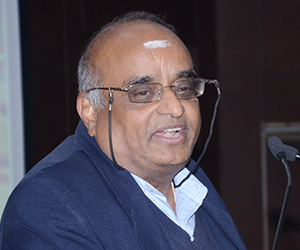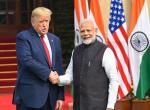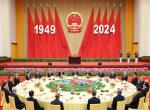When Britain voted to leave the European Union ( called British Exit or Brexit) the Dutch Prime minister Mark Rutte said “England has collapsed politically, constitutionally and economically.” He wasn't wrong. The vote by Britain has also impacted the unity of United Kingdom since Scotland and Northern Ireland wanted to continue in Europe while England and Wales wanted out.
Among the voters, people in the younger age group wanted to remain in compared to older cohorts. Similarly, the poor wanted out compared to the rich.
This was in complete contrast to the 1970s and 1980s. The buzzword was globalization ( The G word) of manufacturing facilities.
The anecdotal evidence often told in many a business school classrooms used to be something like this: The doors of the Ford cars are made in Barcelona, the seat cushions near Budapest, the gearbox in the suburbs of Paris, the music system in Osaka and the assembly done at Shanghai while the car was sold in Thailand. So, what is American about it? It is transnational and the geographical boundaries are crumbling and think global and act local we were told, and the term “glocal” came into existence. This was the ultimate in the process of global integration of economic activities through integration of manufacturing facilities to reduce cost, take advantage of pool of skilled resources available in the emerging markets. It also argued about “standardization “of life styles –mostly the American standards— in terms of Jeans, processed food and cola drinks.
Then the 1990s saw the globalization of Financial Markets, You want to set up a facility in Chennai then you could think of raising funds from New York stock exchange or European Banks if the project were found to be attractive. Funds were looking for markets and “geographical diversification” became the buzzword.
The pension funds were one of the largest investors running into nearly 15 trillion USD and at least 15 to 20 per cent of this was in non-domestic markets. The Funds started searching for markets instead of markets trying to attract funds. The life expectancy in the Europe and US increased significantly and the pension funds were to earn for longer period since old people have to be provided for. Then came the idea of consumption-led growth and greed as the norm. On May 18, 1986 Ivan Boesky gave the commencement address at the University of California at Berkeley’s business school. “I think greed is healthy,” he told his wildly enthusiastic audience. “You can be greedy and still feel good about yourself.” A few months later Boesky was indicted on the charges that would land him in Southern California’s Lompoc Federal Prison, also known as Club Fed West.
But greed continued to be the norm rather than the exception. The inter-temporal expectations became very large and waiting time became shorter and the so called “get rich quick” attitude took over. To achieve those aims domestic markets were not found to be adequate. Hence the search for “geographical allocation” wherein it was felt that risk should be reduced by spreading it across territories and across product lines.
The more financial markets integrated the less they became attractive for diversification since the correlations were becoming more positive. But the meltdown has impacted on the idea of globalization. Suddenly,countries which are supposed to be de-coupled from the global markets are considered smart. Indian Central Bank is praised for keeping India “de-coupled” from integrators. Not only that.
The US Congress included a "buy American” clause in the USD 787 billion stimulus package particularly mandating the use of U.S–made iron and steel in stimulus-funded projects , it was clear that protectionism had trumped globalization. As a response China has a “buy Chinese” clause in its stimulus package of USD 586.
So now the whole game is unravelling on the G front. But the third and most important dimension of globalization, is in the context of the labour markets,to allow free flow of human beings to carry out brown collar work in the West. There is a specter haunting the West. It is the specter of uncleared garbage, clogged drains and overflowing sewerage.s. West is facing an acute crisis in the area of brown collar labor; Labour to clear the garbage, remove plates in restaurants, clean the sewerage and treat the municipal and industrial waste. It cannot be outsourced so easily as that of white collar work since the later has significant content of software portion while brown collar work still has requirements for human beings to be physically present at locations.
In the fifties and the sixties, millions of the Turks and Kurds and Iraqis went to Germany when that economy was booming and they were/ are called guest workers. Even today most are not given rights of Citizens and continue to be guest workers. The Algerians and Moroccans went to France and continue to be a significant minority in France and also active in their Soccer teams. Still, many of them are guest workers since France have this interesting idea of blood being important for becoming citizens– of course the “original” French blood. ! Hence French are rather frugal in accepting them! More than a million Mexicans in USA are called “undocumented”– euphemism for “illegal”. These workers in France / Germany / USA etc. were mainly in the blue and brown collar jobs more so in the lower skill categories like cleaning restrooms and restaurants / meat cutting / grape picking/domestic help/ road laying/ garbage processing/plumbing/ handyman jobs; babysitting etc.
There was a mass of literature on “Social Cost” of having these migrants [in simple language the pain on the civilized west due to the brown and black people]Then came the economic slump in the late nineties and these European countries have erected fences and reject visas etc. for third world labour. Between England and France there is a huge camp (Sangatte camp) near the starting of the tunnel tube train on the French side and the main job of thousands of migrants held there, is to attempt to get into England Sometimes they get killed in the tube rails. But that is fine, since they are after all from lower forms of civilization. But the requirements are soaring in the brown collar area. We find that the municipal waste alone has significantly increased and the per capita waste or generation intensity for OECD countries is more than 600 kg per annum, which has increased many fold compared to their population. This coupled with industrial waste provide a very large challenge to the west since the brown collar work is not being preferred by the white Caucasians.
Let us look at the demographic profile of Europe and US in the next few decades taken from UN population projections. The average total fertility rates in the year 2000 in developed countries was 1.57, and in developing countries it was 3.05.The rate for Europe is 1.4 and Japan is 1.3.
In USA it is just 2.1, India at 3.1 and China at 1.72. It is felt a rate of 2.1 is an appropriate replacement rate, including some death of infants etc. For instance, in another forty years the German population would be lesser by nearly 30 per cent. One third of the population will be more than 65 and they will outnumber children by two to one. Italy’s rate is 1.2, and in that Catholic country in another forty years more than 40 per cent will be above 65 yrs. Over the next decades, the situation could worsen. Estimates suggest that in the next 50 years USA will grow by 100 million numbers and Europe will be less by 100 million numbers. In Russia, two out of three pregnancies are terminated before birth, and Russian women average 2.5 to four abortions each, and their death rate is, believe me, 70 per cent more than the birth rate. Putin warns that in 15 years there will be 22 million less Russians, that is, seventh of its current population. Japan is already facing the age crisis. Of course, the Whites in England are not having enough children, with London readying to have” ethnic majority” in a decade .One can go on.
This reduction in population is out of choice in the post-contraceptive world unlike the reduction in the 16/17 centuries due to plague etc. The aging of the developed countries coupled with a desire of the labour class, including white collar workers, to work for lesser hours are creating a catastrophe. The best example is the term “Working French” “which has become an oxymoron. If borders are sovereign for labour then it is equally sovereign for financial flows also. If financial markets want a borderless world so be it for the labour markets but it is not acceptable by many in the west since they treat Gglobalisation as a one way street. Hence the presence of the “minutemen” in Arizona who will shoot illegal and rhetoric by Obama about Bangalore taking away the jobs from Buffalo and Italian police drowning illegal Africans.
In this context Europe had “integration” where in Polish and Romanians could move into France and UK. Europe does not have common language nor culture .But Project Europe was visualised by French and German “experts” trying to create an artificial entity.
It is important to note that all conflicts in the last thousand years emanated from Europe only and later spread to other parts of the world. Crusades and jehadis were centred on Europe and so were World Wars I and II.
The elites of the world who can be called Davos Junta or Cosmocrats wanted unlimited financial flows across globe and wanted to use Europe as a model.
They don’t have loyalty to any country only to their funds and return on the funds. They don’t have any specific culture other than the “global culture “of drink/eat and fornicate. They like global terrorists do not respect or recognise sovereignty of nations the so called Westphalian consensus evolved in 1648 ending the 30-year war.
The huge movement of people across Europe more so from countries like Romania/Poland etc. to France /Germany/UK created massive problems for small businesses in those countries.
A report in Financial Times in a way high lights this issue. It says: "Alexandre,a fifty year old builder in France supported Brexit– He complained about how builders from Portugal/Spain/Romania were winning small contracts that he had competed for and yet did not pay the same level of taxes or social charges that he faced in France.”
Coupled with the movement of people within Europe is the huge influx of refugees pouring into Europe in the last few years from war- torn countries likeSyria/Yemen/Iraq/Afghanistan and even Pakistan.This has created its own tensions in Europe due to religious and cultural conflicts.
Hence we find many right wing parties in France [Le Pen] Holland [Wilders] Austria/Hungary etc. are not enthusiastic about EU and may initiate methods to leave.
Surprisingly Davos Junta and left groups are for EU which is a peculiar alignment of Global finance and Domestic labour. But the labour in England revolted and voted for Brexit. So Project Europe is in shambles and so is globalisation. The idea that one size fits all is losing its shine. Different cultures / different communities have different aspirations and goals. It cannot be fitted in to an American or for that matter European model.
Also, it is difficult to compel people to live as per models. Much more important to model actual behaviour of people in different contexts.
It will take decades for the West to internalize that the axis of global economy has shifted to Asia. It will be globalization on the terms of the East. India is the most enthusiastic and eligible candidate for Globalisation since India itself is a Globe but not realized by many Indians. In my class of hundred students—every year– I have at least eight major languages as mother tongues, six different cuisines and four major religions and multiple ways of saying “How are you?” Can any group be more globalised? India understands heterogeneity much better than the homogenization process of globalization thrust by the Weston the rest. Indian globalization is based on acceptance and not tolerance. That is the difference. That is real Globalization. That alone will work. Even China is learning it the hard way by the revolt of the Uighurs which brings the issue of heterogeneity and China’s ability to handle it. Sooner the Chinese learn from India better for them.
Published Date: 25th July 2016, Image Source: http://www.nbcnews.com
(Disclaimer: The views and opinions expressed in this article are those of the author and do not necessarily reflect the official policy or position of the Vivekananda International Foundation)











Post new comment